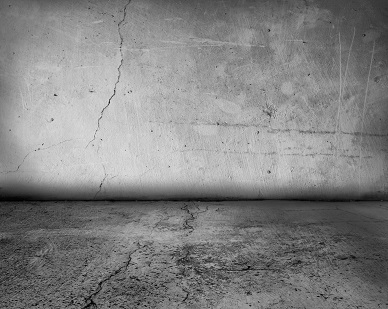Deterioration of Concrete: 2 PDH
$12.00
A basic understanding of the underlying causes of concrete deficiencies is essential to performing meaningful evaluations which lead to the proper selection of the method or technique used to successfully repair concrete. Symptoms or observations of a deficiency must be differentiated from the actual cause of the deficiency, and it is imperative that causes and not symptoms be addressed in repairs. Deterioration of concrete is an extremely complex subject since, in most cases, the damage detected will be the result of more than one mechanism.
In this course, the student will review Chapter 3, Causes of Distress and Deterioration of Concrete from Engineer Manual (EM) 1110-2-2002, “Engineering and Design – Evaluation and Repair of Concrete Structures” published by the U.S. Army Corp of Engineers (issued 30 June 1995). This course is most relevant to engineers wishing to attain knowledge on the most common causes of problems in concrete. The course also provides a brief description of the basic mechanism of each common problem, a description of the typical symptoms that would be observed during a visual inspection, and suggests preventative methods or techniques to prevent further damage.
SPECIFIC KNOWLEDGE OR SKILL OBTAINED
This course teaches the following specific knowledge and skills:
- Common causes of concrete deterioration
- Symptoms of concrete distress and deterioration that can be found during visual inspections
- Preventative measures to reduce or eliminate further concrete degradation.
CERTIFICATE OF COMPLETION
You will be able to immediately print a certificate of completion after passing a 10 question multiple-choice quiz. The quiz can be retaken unlimited times until a passing grade of 70% or better is earned. This course satisfies 2 professional development hours (PDH) of continuing education.
Related Courses
Virginia-Civil Engineering Package #2: 16 PDH
$96.00Original price was: $96.00.$64.00Current price is: $64.00. Add to cartThree Civil Engineering courses plus Virginia Laws, Rules, & Ethics course that will earn 16 PDH guaranteed to be accepted by the Virginia APELSCIDLA Board.Instructor: Raymond Bosek, PEVirginia – Laws, Rules, and Ethics for Professional Engineers: 3 PDH
In this course the student will study the Virginia State APELSCIDLA Board Laws and Regulations, including Professional Engineering Ethics.
Accident and Operational Safety Analysis: 4 PDH
In this course the student will understand the fundamental concepts of accident dynamics, accident prevention, and accident analysis. The student will learn the theoretical bases of safety management and accident analysis, and the practical application of a Safety Management framework for an organization.
Gravel Road Construction: 4 PDH
It is estimated that over a third of the 4.09 million miles of roadway in the United States are not paved. These are typically unpaved gravel or dirt roads, and they’re mostly located throughout rural areas and communities where the volume of traffic is so low that paving and maintaining a paved road is not economically feasible. In this course the student will understand basic concepts in designing and maintaining gravel surfaced roads and essential tips to ensure lasting performance.
Residential Structural Design: 5 PDH
In this course the student will understand the basics of residential construction and design, residential structural design concepts and design loads for residential buildings and to gain an understanding of modern design methods and concepts for light-frame homes, apartments, and townhouses.
Virginia-Electrical Engineering Package: 16 PDH
$96.00Original price was: $96.00.$64.00Current price is: $64.00. Add to cartThree Electrical Engineering courses plus Virginia Laws, Rules, & Ethics course that will earn 16 PDH guaranteed to be accepted by the Virginia APELSCIDLA BoardInstructor: Juan Pesante, PEVirginia – Laws, Rules, and Ethics for Professional Engineers: 3 PDH
In this course the student will study the Virginia State APELSCIDLA Board Laws and Regulations, including Professional Engineering Ethics.
Compressed Air Energy Storage and Pumped Storage Hydropower Concepts: 4 PDH
In this course the student will understand understand current Compressed Air Energy Storage (CAES) and Pumped Storage Hydropower (PSH) technologies and explore future advances of this technology by examining the feasibility of a variety of different concepts.
Energy Storage Technology Cost and Performance: 4 PDH
In this course the student will understand a variety of different energy storage technologies and explore their advantages and disadvantages with an in-depth cost and performance comparison. This course follows the report: Energy Storage Technology and Cost Characterization Report, published by the U.S. Department of Energy (DOE).
Electrical Storage Guide for Electrical Engineers: 5 PDH
This course provides a thorough overview of current electrical storage technologies including batteries, flywheels, compressed air energy storage (CAES), and pumped storage hydropower (PSH) and is a how-to guide for engineers to aid in the selection, procurement, installation, and/or operation of stationary energy storage systems in today’s electric grid.




